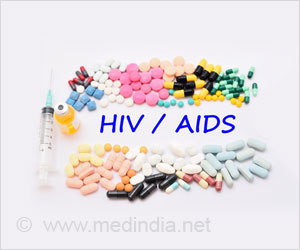AIDS patients taking antiretroviral drug efavirenz are less likely to experience virologic failure and more likely to adhere to treatment.
AIDS patients taking the antiretroviral drug efavirenz are less likely to experience virologic failure and more likely to adhere to treatment than those taking nevirapine, according to a study led by researchers at the Johns Hopkins Bloomberg School of Public Health.
Nevirapine is the most frequently prescribed drug for patients undergoing highly active antiretroviral therapy (HAART) for the treatment of HIV/AIDS in sub-Saharan Africa, where the study was conducted. The study is published in the October 18, 2008 issue of the journal AIDS.“Our findings add to existing limited evidence that efavirenz-based therapies produce a more favorable virological and clinical outcome than nevirapine,” said Jean Nachega, lead author of the study and associate scientist with the Bloomberg School’s Department of International Health. “Patients started on nevirapine had an increased risk of virologic failure and death and were significantly less likely than those started on efavirenz to achieve high treatment adherence.”
“Given the rapid roll-out of antiretroviral programs in Africa and the frequent use of first-line nevirapine-based HAART in such programs the assumption that efavirenz and nevirapine are equally effective needs to be reassessed,” said Nachega, who is also professor and director of the Centre for Infectious Diseases at Stellenbosch University in South Africa.
Hence, he stressed, “there is a critical need for a large randomized clinical trial to definitively compare the outcomes of efavirenz and nevirapine and for acceleration of efforts to develop lower cost formulations of efavirenz, including generic, fixed-dose combinations in Africa.”
Nachega, in collaboration with Gary Maartens, professor of Medicine at University of Cape Town, and several other colleagues from the University of Cape Town in South Africa, examined the records of 2,817 HIV- infected adults currently enrolled in Aid for AIDS, a private-sector employer-subsidized disease management program in Africa. Participants were HAART naïve adults who began nevirapine-based or efavirenz-based therapies between January 1998 and September 2004.
Researchers determined how often patients requested reimbursement for their purchases of nevirapine- or efavirenz-based HAART to estimate adherence to their treatment regimens. They also evaluated patients CD4 counts, viral load changes and mortality, which are measurements that indicate how well a treatment is working. Program participants were in nine countries in Africa with the majority in South Africa.
Advertisement
Source-Medindia
GPL/SK












